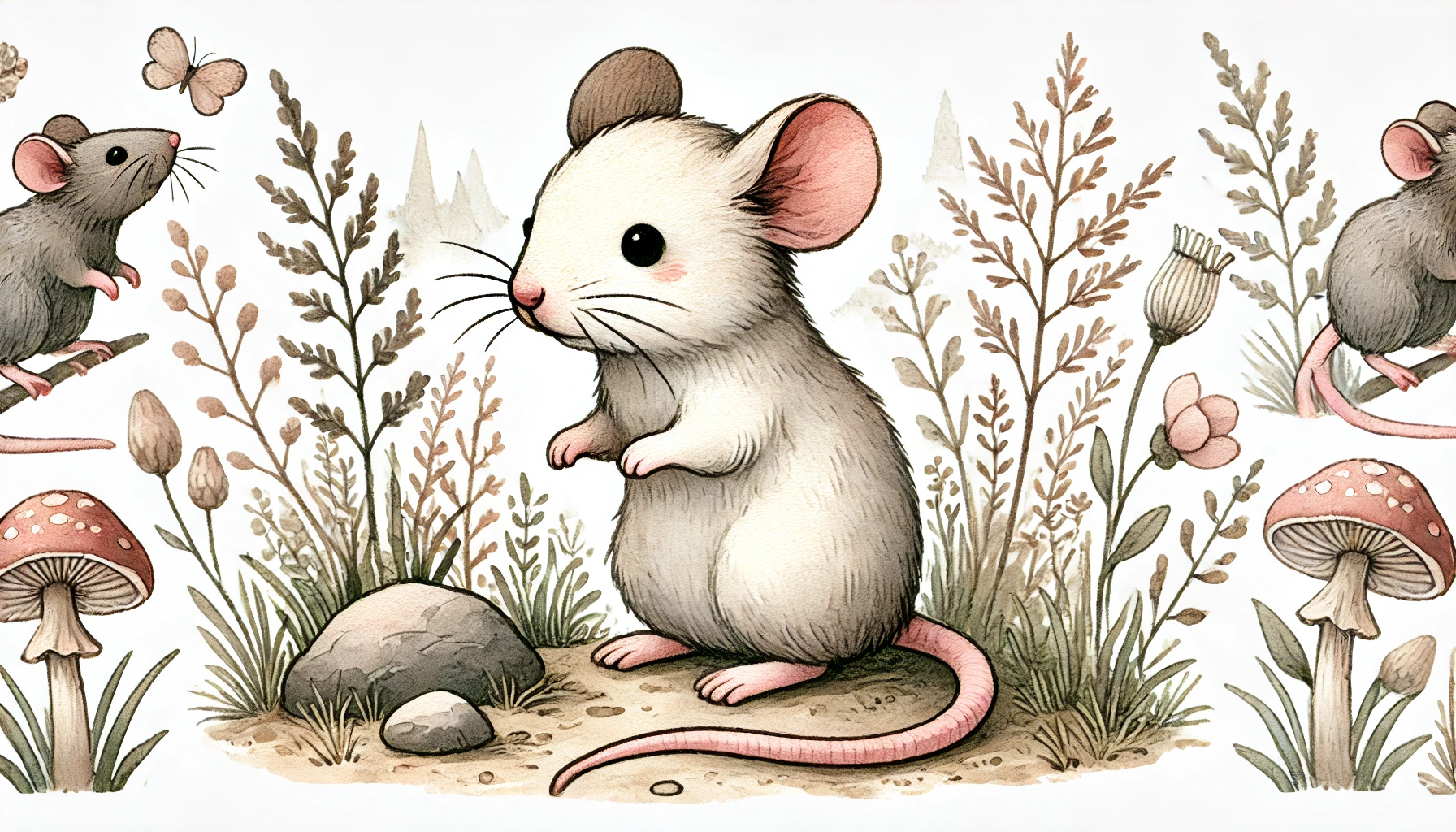 The Fear of Rodents: Suriphobia
The Fear of Rodents: Suriphobia
Does panic set-in at the sight of any furry, scurrying creature? Does the thought of encountering a rodent leave you frozen with fear? If anything like that rings at all true, you might be experiencing suriphobia – the fear of rodents.
At Creature Courage we have helped countless individuals overcome their animal fears, and understand the overwhelming anxiety and distress that phobias can cause.
But here’s the good news: you’re not alone and there’s always hope. With the right approach and support, you can conquer your fear of rodents and the best place to start is through understanding your fear, learning about the creatures triggering and then doing something positive to reclaim your peace of mind.
Understanding Suriphobia
Suriphobia, also known as musophobia or murophobia, is an intense and irrational fear of rodents. The phobia can arise from a fear of various rodent species, including mice, rats, squirrels, and even guinea pigs and hamsters. The severity of suriphobia can range from mild discomfort to debilitating panic attacks, and common triggers are:
- Coming into contact or seeing a rodent
- Hearing rodent-like sounds, like scratching or scurrying
- Encountering rodent droppings or evidence of rodent activity
- Viewing images or videos of rodents
- Visiting places associated with rodents, such as barns or pet shops
For more information about this and other specific animal phobias, check out our Frequently Asked Questions about animal phobias.
The Root Causes of Rodent Phobia
Understanding the origins of your fear is crucial in overcoming it. Suriphobia often develops due to:
- Traumatic Experiences: A frightening encounter with a rodent, especially during childhood, can leave a lasting impression.
- Learned Behaviour: If a parent or close family member showed extreme fear of rodents, you might have unconsciously adopted this fear.
- Cultural Associations: Rodents have long been associated with disease and uncleanliness, which can contribute to fear and disgust emotions.
- Evolutionary Factors: Some researchers suggest that fear of rodents may have an evolutionary basis, as rodents have historically posed threats to human food supplies and health.
Debunking Rodent Myths
Let’s address some common misconceptions about rodents that may be fuelling your fear:
- Myth: Rodents are dirty and disease-ridden creatures. Reality: Like many wild animals, it is possible that some rodents carry diseases, but the truth of it is that most species of rodents spend considerable time grooming each day to keep themselves clean.
- Myth: Rodents can be aggressive and attack humans unprovoked. Reality: Most rodents are naturally timid and will try to avoid contact with humans whenever possible. Potentially, in the wild they may attack if cornered or in defence of their home, but we are the bigger species and it makes sense for them to fear us – not the other way around.
- Myth: All rodents are pests. Reality: Many rodent species play crucial roles in their ecosystems, and, of course, some make very popular pets.
Fascinating Rodent Facts
Rodents are more diverse and fascinating than you might think. Here are some intriguing facts that might help you see these creatures in a new light:
- Rodents make up about 40% of all mammal species, showcasing incredible diversity. There are over 2,000 different rodent species, how many can you think of?
- Some rodents, like prairie dogs (did you have them in your list), have complex communication systems that resemble a form of language.
- Capybaras, the world’s largest rodent, sometimes weigh-in as heavy as an adult human, are known for their friendly and social nature.
- Many rodent species display high intelligence and problem-solving abilities.
Learn more about the positive aspects of various animals on our unique approach to phobia therapy page.
Overcoming Suriphobia: Your Path to Freedom
At Creature Courage, we’ve helped many people overcome their fear of rodents and other phobias. Here’s how we can work together to conquer your suriphobia:
- Cognitive Behavioural Therapy (CBT): We work together to identify and challenge the thoughts and beliefs fueling your fear.
- Exposure Therapy: This is a gradual therapy that keeps you in control, whilst gently exposing you to rodents all within a safe and controlled environment. Learn more about exposure therapy.
- Relaxation Techniques: Learn methods to help manage anxiety and stay calm when confronted with rodents. This works on general anxiety and it’s something we encourage you to use throughout your life, whenever you feel overwhelmed or anxiety creeping in.
- Education: We strongly believe that learning about how and what triggers your phobia is absolutely key to overcoming your fear. One of the first steps is for us to provide you with accurate information about rodents to dispel myths and reduce fear from the start.
- Virtual Reality: This is not used throughout our phobia sessions but, sometimes, using cutting-edge technology to simulate rodent encounters in a safe space can be hugely beneficial. Discover the benefits of Virtual Reality Exposure Therapy.
Explore our comprehensive animal phobia treatment options to find the best approach for you.
Take the First Step Today
Don’t let suriphobia control your life any longer. With the right support and techniques, you can overcome your fear of rodents and enjoy a life free from this debilitating phobia.
So, you’re ready to face your fear? Contact Creature Courage today. We are here to guide you through your journey to a life free from rodent phobia. Check out our range of phobia treatment services and affordable phobia treatment options to start your journey towards a fear-free life.
FAQ: The Fear of Rodents (Suriphobia)
What is suriphobia?
Suriphobia is an intense and irrational fear of rodents, which can include mice, rats, squirrels, and other similar animals. Individuals with this phobia may experience significant anxiety or panic at the sight or even thought of these creatures.
What are the common symptoms of suriphobia?
Symptoms can vary but often include:
- Rapid heartbeat
- Shortness of breath
- Sweating
- Trembling
- Nausea
- Feelings of dread or impending doom
What causes suriphobia?
Suriphobia can develop due to various factors, including:
- Traumatic experiences involving rodents during childhood
- Learned behaviour from family members who exhibit fear
- Cultural associations linking rodents to disease and uncleanliness
How can I overcome my fear of rodents?
Overcoming suriphobia often involves a combination of therapies such as:
- Use Cognitive Behavioural Therapy (CBT) to identify and challenge irrational thoughts.
- Exposure Therapy helps you to gain control of your fear by slowly exposing you to your fear, but in a safe and in a controlled manner.
- Relaxation Techniques are essential for controlling and managing anxiety when faced with animal phobia triggers or the simple stress of daily life.
For more detailed information on treatment options, visit our Animal Phobia Treatment page.
Is suriphobia common?
Yes, suriphobia is common and can affect people of all ages, and it can manifest through varying degrees of severity, from mild discomfort to debilitating panic attacks.
Can children develop suriphobia?
Absolutely. Children can develop suriphobia, often influenced by traumatic experiences or learned behaviours from parents or peers.
What should I do if I encounter a rodent?
If you encounter a rodent and feel panic, try to remain calm. Focus on your breathing, as we do in our relaxation workshop, and remind yourself that most rodents are not aggressive and will likely avoid you. If your fear is overwhelming, seek support from a mental health professional.
For further assistance in overcoming your fear of rodents, Contact Creature Courage today. Our team is here to help you on your journey towards freedom from suriphobia.

 The Fear of Rodents: Suriphobia
The Fear of Rodents: Suriphobia